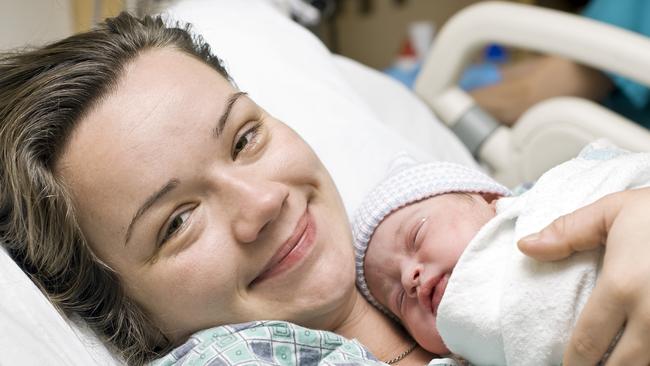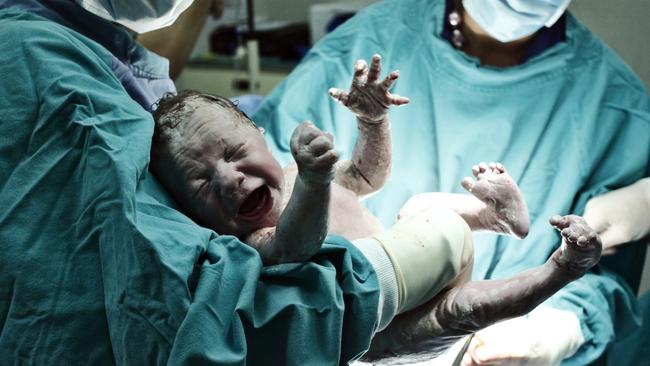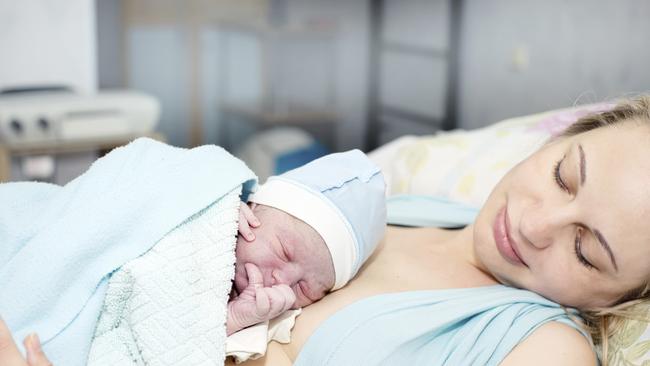Melbourne researchers uncovering placental stem cells in ageing in bid to prevent stillbirths
MELBOURNE researchers are calling on the fountain-of-youth properties of stem cells to halt the ageing process in the placenta, with the aim of preventing stillbirth.

VIC News
Don't miss out on the headlines from VIC News. Followed categories will be added to My News.
MELBOURNE researchers are calling on the fountain-of-youth properties of stem cells to halt the ageing process in the placenta, with the aim of preventing stillbirth.
An early delivery can be fatal to babies born with underdeveloped organs, but keeping babies in the womb too long is also a risk as the placenta can “run out of puff” at the end of pregnancy.
Royal Women's Hospital researchers are uncovering the role of placental stem cells in ageing and have found that even in as little as four weeks — between 37 weeks to 41 weeks gestation — key ageing markers can double.

Head of the Women’s Pregnancy Research Centre, Professor Shaun Brennecke, said the group was the first to look the role of stem cells in ageing, and if it was a normal or accelerated process.
“There has long been the thought that stillbirth has something to do with the placenta running out of puff, and not being able to keep up with the metabolic demands the baby has for food, nutrition and oxygen,” Prof Brennecke said.
“Sometimes, babies are quite well grown or not suffering obvious health problems, but within a few days, the placenta can fail their needs. The question is, what is that mechanism of ageing?”
Studies overseas have shown that the risk of stillbirth of is five times higher at 42 weeks gestation than at 37 weeks. Stillbirth occurs in about 1 in 135 babies born over 20 weeks, the same rate for the past 20 years.
ARE STEM CELLS THE MEDICAL CURE-ALL OF THE FUTURE?
CEREBRAL PALSY HOPE: MELBOURNE STEM CELL NEWBORN BRAIN INJURY TRIAL PLAN
STEM CELLS USED TO REGROW KNEE CARTILAGE IN WORLD-FIRST MELBOURNE TRIALS

PhD student Ramin Khanabdali, who is part of the research team, isolated stem cells from human placenta samples and grew them in the laboratory over four months. The 41 samples were crossmatched for factors including mother’s age and BMI, and compared as two groups: 37-39 weeks gestation and over 40 weeks.
The study confirmed ageing occurred in the older group but also there was a twofold increase in the key hallmarks of ageing including cell death, inflammation and resistance to oxidative stress.
“Reversing stem cells to make them young again, that’s our ultimate goal,” Mr Khanabdali said. “If we can keep the placenta young in this period, it could also help earlier pre-terms stay in longer.”
Potential therapies to be explored included injections of healthy stem cells to rejuvenate the placenta. Mr Khanabdali presented the findings as part of Royal Women’s Hospital Research Week.


